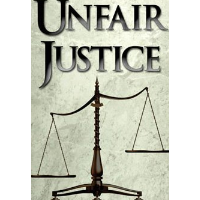U.S. Drug Defendants Often Coerced into Pleading Guilty
 (graphic: San Francisco Sentinel)
(graphic: San Francisco Sentinel)
Drug offenders in the United States often are confronted with choosing between pleading guilty and going to prison for a long time, or going to trial and risk spending the rest of their lives behind bars.
Such is the harsh choice that many prosecutors present to defendants in their efforts to hardball the accused into avoiding trials.
“Prosecutors routinely threaten ultraharsh, enhanced mandatory sentences that no one—not even the prosecutors themselves—thinks are appropriate,” Judge John Gleeson, of the United States District Court for the Eastern District of New York, said in a court statement (pdf) on October 9.
The result, Gleeson wrote, is guilty pleas and prison sentences “so excessively severe they take your breath away.”
Human Rights Watch (HRW) recently produced a report that attempted to quantify the so-called “trial penalty”—the additional prison time that drug defendants receive if they exercise their right to a trial and lose—which prosecutors use to leverage guilty pleas.
The research showed that federal drug offenders convicted at trial in 2012 received sentences that averaged 16 years—triple the average of five years and four months for those who accepted a plea bargain.
HRW also found that prosecutors used a defendant’s prior convictions only 24% of the time with those pleading guilty, but used them 72% of the time with those going to trial.
As a result of options facing them, 97% of defendants in these cases pleaded guilty. Consequently, federal drug trials are almost becoming a thing of the past.
“The punishment is supposed to be proportionate with the crime,” Jamie Fellner, a senior adviser to Human Rights Watch and author of the study, told The New York Times. “If a prosecutor thought 10 years was sufficient, how come if you go to trial, now you’re looking at life?”
U.S. Attorney General Eric Holder has opposed “draconian mandatory minimum sentences” being imposed on “low-level, nonviolent drug offenders,” and supports pending Senate legislation to address the issue.
-Noel Brinkerhoff
To Learn More:
Prosecutors Draw Fire for Sentences Called Harsh (by Erik Eckholm, New York Times)
US: Forced Guilty Pleas in Drug Cases (Human Rights Watch)
An Offer You Can’t Refuse (Human Rights Watch)
Prosecutors Are behind Inconsistent Federal Sentencing Laws across U.S. (by Noel Brinkerhoff, AllGov)
- Top Stories
- Unusual News
- Where is the Money Going?
- Controversies
- U.S. and the World
- Appointments and Resignations
- Latest News
- Musk and Trump Fire Members of Congress
- Trump Calls for Violent Street Demonstrations Against Himself
- Trump Changes Name of Republican Party
- The 2024 Election By the Numbers
- Bashar al-Assad—The Fall of a Rabid AntiSemite






Comments